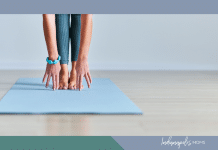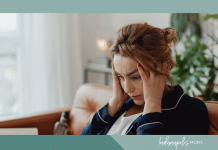Over the years, I have taken pride in considering myself a well-balanced, healthy person. I eat a healthy diet, drink plenty of water, exercise regularly, and (usually) indulge only in moderation. I don’t get enough sleep, but nobody’s perfect. When I have felt a little “off” from a mental health perspective, I have typically known what my body needed and was able to make some adjustments to help myself feel better. That is, until the past few years. Life as a human on Earth is hard. It doesn’t take much for your head to start spinning – and then the rest of your life follows suit. As I trudge my way through, I recently realized that I have developed a sneaky but real, unhealthy coping mechanism – surrounding myself with constant noise.
As a mother of young children, time alone is a commodity. It can be scarce and (as much as we love those little boogers) is always sacred. When I started feeling more anxious about the state of, well, everything, I started filling any free moment with distractions. Drive to work – listen to a podcast. Drive home – listen to an audiobook. Lying in bed with my daughter as she drifts to sleep – audiobook through headphones. Doing the dishes, brushing my teeth, etc. – audiobook. You get the idea.
At the time, I thought I was doing great. I went from reading two books for pleasure over a decade to listening to more than 30 audiobooks in a year. I’m “reading!” Look how well-rounded I am! What’s so wrong with that? The answer at the surface is nothing. Nothing is wrong with listening to hundreds of audiobooks if you want to. It can be amazing. But in my case, I began to realize I was filling up all my “alone” time with noise and distractions. I never spent a moment reflecting on what was going on in my life and inside my head. I started to feel that any ounce of creativity I once possessed had slowly dripped away. I couldn’t write. I couldn’t keep track of all my obligations.
From the outside, I may have had things under control, but my insides were ready to burst. As I would get in the car for my commute or have a moment alone to get some things done around the house, an anxious feeling would bubble up in my chest. I would pull out my phone to search for a temporary “solution” – a distraction to push the feeling away—my unhealthy coping mechanism. I would scroll and swipe from podcast, to audiobook, to a different podcast until I found the day’s winner to distract me from my own thoughts. My exciting new audiobook habit had possibly become too much of a good thing.
As I come to terms with this unusual unhealthy coping mechanism, here are changes I am making to add more mindfulness back into my life (and don’t worry, I’m not entirely giving up audiobooks!):
- Quiet drives to work – just me and my thoughts. This isn’t every day but an occasional change to the routine. A little time with no distractions to reflect, plan, or whatever I need at that moment
- Deep breathing exercises – On those crazy mornings when the kids weren’t listening, so I’m running late and feel like I want to scream (every day?), I spend the first few minutes of my drive deep breathing to calm my body instead of jumping right into my book or podcast. Some days I will throw in a quick guided meditation from the Calm app.
- A couple of minutes of journaling at bedtime – I admittedly have never developed a great journaling habit, but even when I have done this for short spurts, I have found it rewarding. A couple of my favorites are this Flecks of Gold journal – a moment per day reflecting on the “golden” moments in motherhood – and this Promptly gratitude journal. Working on truly building this habit.
- Coloring with my children – Both of my kids are very into coloring right now, and I find it so relaxing. A calming activity for me and spending time with my children – double win! Sign me up.
Having good coping mechanisms is not a solution to all mental health problems, but it can certainly help you feel better along the way. If you are concerned about how you feel – feeling down, depressed, anxious, or just not right – please don’t hesitate to see your primary care doctor! Whether it’s helping you realize your own unhealthy coping mechanisms or treating you for a deeper problem, this can be a step in the right direction to getting you back to feeling like yourself again.








